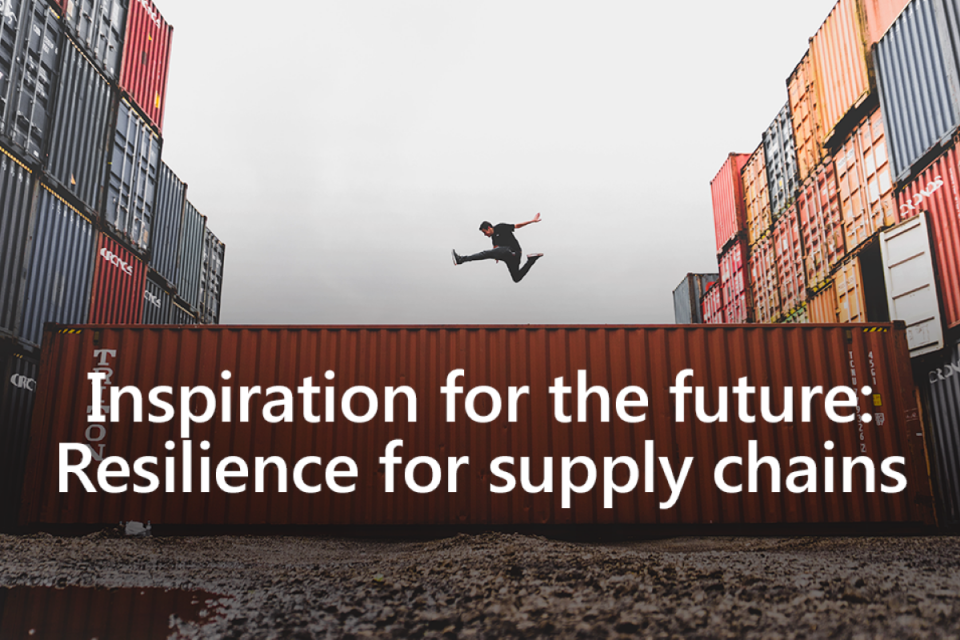
General Manager Enterprise Commercial Microsoft Central and Eastern Europe (CEE)
Shopping isn’t a modern invention – and neither is the disruption caused by global crises. In my latest blog, I look at how Europe’s retailers can optimize their supply chains to content with unexpected disruption.
When you think about global supply chains, what do you envisage? Perhaps you’re imagining cargo ships crisscrossing the globe, or brown paper packages making it from warehouse to doorstep overnight. But with the festive period underway and presents piling up around the tree, it’s worth reflecting on the fact that globalized supply chains, including for retail goods, have been around for centuries. And for as long as they’ve existed, they’ve been disrupted, evolved and survived.
When the COVID-19 pandemic unfolded earlier this year, many questioned how global supply chains would fare. Some speculated that business would rue the day they decided to rely on “just-in-time” systems, rather than thinking about “just-in-case”. But rather than the collapse some predicted, what we’ve actually seen is a huge amount of ingenuity and creativity from retailers and suppliers alike, who’ve found ways to keep shelves stacked and orders met regardless of the challenges. For many, this has been possible thanks to technology.
Recent research from Microsoft suggests that the majority of companies in Central and Eastern Europe (CEE) see technology as an important enabler for recovery and reinvention – and this includes supply chain management. Up to two thirds of retail companies in CEE are either already using advanced technologies like artificial intelligence (AI) now or will do so within the next year, while a quarter are looking to use technology specially to ensure faster delivery timelines and more efficient inventory management.
One great example of this in action comes from our customer Ydstri, which uses AI to analyze sales and inventory data to re-route unsold products, known as deadstock, from areas where they aren’t in demand, to other stores where they can be re-shelved and sold at full price. In this way, customers get more of what they like best in their local store, while retailers can minimize waste and increase sales.
This kind of agility is key to helping retailers foster the resilience needed to thrive in uncertain times. Research from Bain & Company, conducted in partnership with Microsoft, suggests that many companies are adapting their supply chain management strategies accordingly: 90 percent of respondent plan changes to their supply chain networks and more than 40 percent expect to increase their total supply chain investment specifically to improve not just speed, but also agility and resilience.
We’ve also seen retailers placing increasing expectations on their logistics providers and making the right choice in this regard has become a priority. Retailers expect the kind of service provided by DHL, one of the world’s largest logistics providers, which is deploying technology to maintain end-to-end visibility across its customers’ supply chains, predict fluctuating demands in real-time, and prepare for possible disruptions – something which has shown its value more than ever in 2020.
Finally, it’s vital that retailers have the ability to respond to evolving consumer demands and expectations. Much like the rest of 2020, this year’s festive period will be different. Many countries are still in lockdown, with limitations on in-person socialization and shopping. This means that many consumers are looking online to tick off their gift-giving needs: a Forbes survey suggested that 83% of consumers are likely to opt for online shopping or omni-channel approaches such as curbside pickup, rather than shopping in-store, this holiday season. This places additional pressure on retailers to ensure supply chain continuity, even if consumers’ shopping patterns are new.
With the right partners and the right technology, retailers can resolve to make resilience and agility their watchwords for 2021, enabling them to pivot rapidly to meet changing market demands and circumstances.
All the best for your start in 2021!
Hans-Jürgen Rose
Microsoft General Manager Enterprise
Central and Eastern Europe
Source: Expecting the unexpected: how retail supply chains can remain resilient





